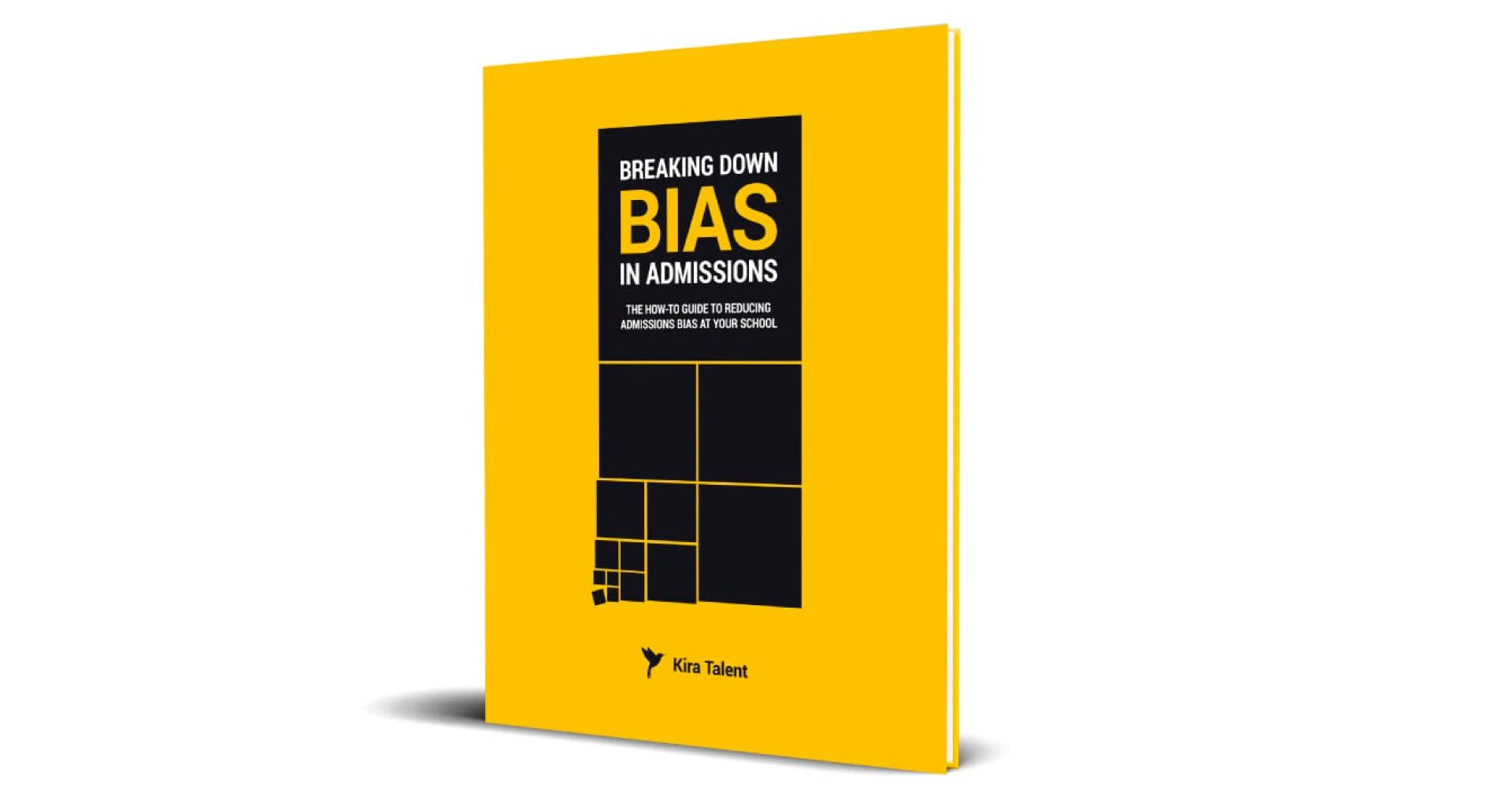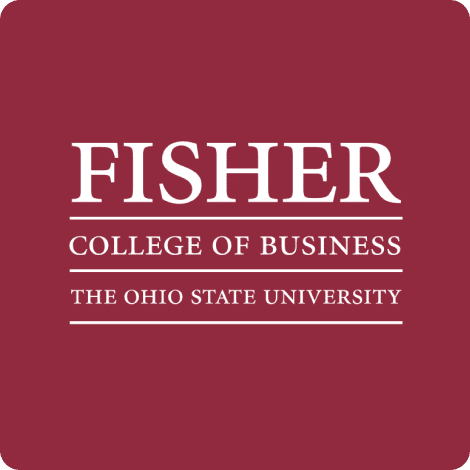Ahhh Spring!
Typically at this time of year, we’re getting ready for graduation ceremonies and preparing for next fall’s incoming class and looking forward to a week or two of well-deserved rest and relaxation.
Unfortunately for all of us – there is nothing typical about the spring of 2020.
In the thick of both a global pandemic and an economic downturn not seen since The Great Depression, we are grappling to bring back some sense of normalcy in our lives.
To find it, many of us are turning to colleagues and peers at other schools for ideas, tips, tools, and innovative approaches to tackle the challenges of the most unpredictable academic year of our careers.
Read Kira’s Report on Remote Admissions
To shed some light on the current situation, we reached out to Graham Richmond, a 25-year business school admissions veteran and Co-Founder of Clear Admit.
As an experienced enrollment advisor, Richmond weighed in on what’s happening across the graduate landscape and offered invaluable insights, predictions, and advice for overcoming admissions challenges ahead.
5 Questions with Graham Richmond
Kira Talent: Being at Clear Admit, what are the top concerns you’re hearing from students right now?
Graham Richmond: Based on the recent survey work we’ve conducted with our community of MBA applicants, the biggest concerns are centered on three areas: 1) student experience, 2) recruiting opportunities, and 3) logistics.
Regarding student experience, applicants are worried that key elements of the MBA program like networking, friendships, clubs, travels, and the presence of international students will be disrupted by COVID-19.
In terms of recruiting opportunities, they worry about the prospect of internships and jobs in both the short and long term.
On the logistics end of things, there is a great deal of concern around student visas for international students, travel bans, and the overall difficulty with planning for a relocation during a pandemic.
KT: How do you think enrollment and admissions workflows will change in the next 6-12 months?
GR: In the very near term, the biggest challenge for admissions offices will be bringing in the Class of 2022 - juggling deferrals, student visa issues, shifting university policies on re-opening, and larger-than-usual waitlists.
Of course, while that is all taking place, there will be a very real need to plan and execute marketing and recruitment efforts to ensure a strong pipeline of applications for the Class of 2023.
That effort will look very different this year than it has in year’s past; in-person MBA fairs, corporate visits, alumni networking events – and even on-campus information sessions and tours, are all likely off the table for the foreseeable future.
In addition, the evaluative interview process is likely to remain virtual in the coming admissions season. In light of this, admissions and marketing professionals at leading business schools will need to enhance their online marketing efforts and quickly aim to assess which channels work and which do not.
The good news is that with all of the travel and in-person events on hold, there should be budget available to push the more virtual marketing efforts and outreach.
KT: In what ways do you think this situation has or will accelerate digital transformation in schools’ admissions process?
I think this situation is going to force schools to further explore the use of technology at virtually every phase of the admissions process.
GR: I think this situation is going to force schools to further explore the use of technology at virtually every phase of the admissions process.
Whether it’s online marketing to build the pipeline of quality applicants or even fully digitizing pieces of the evaluation process (like candidate interviews). I also think schools will need to look for new ways to reach applicants online – and beyond the confines of their own websites.
Keep in mind that it’s entirely possible that campus visits and in-person interviews are off the table for the 2020-2021 admissions cycle.
On a related note, I also think that this situation presents an opportunity for schools to have a bit of a rethink on all the travel they typically engage in, and how much of it is truly necessary – especially when you view it through an environmental impact lens.
KT: What strategies have you seen for schools to encourage enrollment (commitment) and manage deferrals?
GR: Many business schools are trying as much as possible to be flexible, but for the vast majority of programs, this means dealing with deferrals on a case-by-case basis and generally reserving them for students who cannot come to school for logistical (visa, travel) or health reasons.
Deferrals aside, schools that will be successful at bringing in their class are going to need to be transparent, provide signposts, and generally walk hand-in-hand with their admitted student community as the picture for the fall comes into focus.
One thing I’ve seen in the marketplace that struck me was Harvard Business School’s open offer of deferral to everyone in the Class of 2022. The fine print is what struck me: all deferrals must be requested between May 15th and June 1st, and the school reserves the right to defer candidates into either the Class of 2023 or the Class of 2024.
In short, HBS will get valuable information from their admitted students (and quickly!). They may also help ensure that those who choose not to defer are ‘all-in’.
KT: What are the implications of a significant deferral % of students?
GR: The issue with so many deferrals is fourfold:
-
-
- Schools will have to dig deeper into their waitlists than in a usual year
- Some schools may ultimately opt to have smaller classes
- Schools may have fewer international students
- Next season’s applicants will find fewer slots available at many select schools as the deferred candidates have already reserved them
-
KT: What do you think the “new normal” is going to be for business schools? How does that impact admissions?
One thing is for sure; the days of in-person only standardized testing are likely a thing of the past.
GR: I truly wish I had a crystal ball on this one. Part of me thinks that things may gradually (over the course of 18-24 months) return to the way that they were, but there is another part of me that feels as if everything will change permanently; that schools will move to deliver more hybrid (online/in-person) learning, that more and more aspects of admissions, recruiting, and experiential learning will take place online.
One thing is for sure; the days of in-person only standardized testing are likely a thing of the past. The fact that the GMAT and GRE are both now available online is a major leap forward and I don’t think that genie can go back in the bottle.
About Graham Richmond

Early in his career, Graham Richmond joined the MBA admissions team at Wharton, where he vetted thousands of applications and helped to develop groundbreaking marketing initiatives using technology.
In 2002, Richmond left Wharton to co-found Clear Admit, where he and his colleagues created a leading MBA applicant community site and news outlet serving tens of thousands of prospective candidates.
Beyond creating innovative applicant-facing tools like Clear Admit’s LiveWire, Richmond has also delivered projects on the institutional side of admissions, providing enrollment management services to business schools around the world.
Richmond holds a BA from Swarthmore College and an MBA from the Wharton School and is a frequent presenter at higher education industry conferences. He also serves as a source of expertise on industry trends for publications such as The Wall Street Journal, Bloomberg Business Week, Forbes, and The Washington Post.
Looking for more tips to help you navigate these unprecedented times? Check our recent report on how admissions teams are responding to COVID-19 or our post on the tech and tools that will help you take on admissions remotely!



